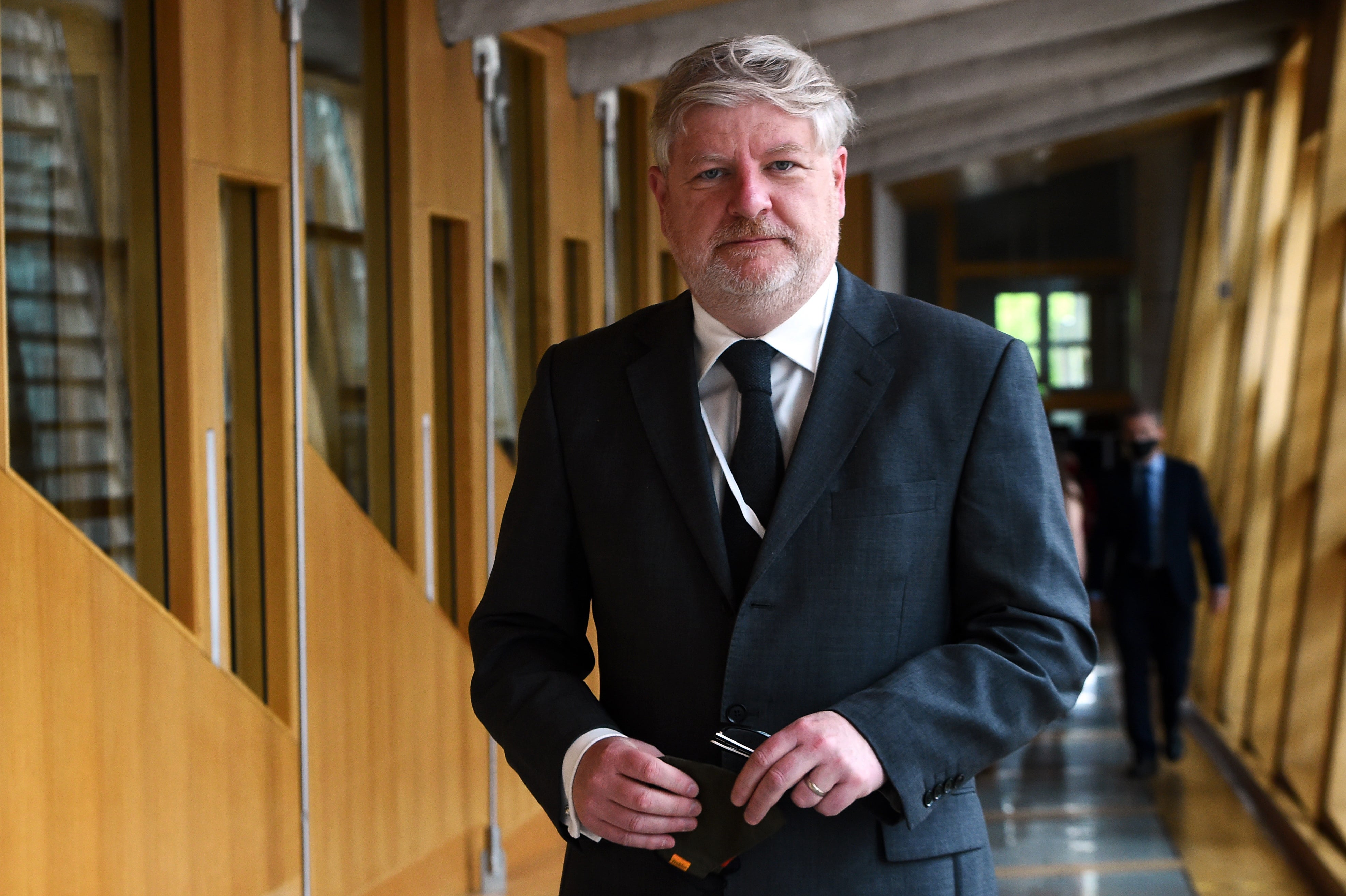
Freezing the licence fee risks undermining the work of the BBC and could also “threaten public service broadcasting”, Scotland’s Culture Secretary has insisted.
Angus Robertson raised concerns about Nadine Dorries’ decision in a letter sent to his UK Government counterpart, in which he warned that “ideologically-driven threats” to stable funding arrangements for the broadcaster could “risk destabilising this valuable asset”.
With BBC bosses having already warned that the licence fee freeze will leave them with a £285 million shortfall by 2027-28, Mr Robertson said the move could have a “direct impact” on the broadcaster’s output across the whole of the UK.
He added: “I am deeply concerned that this will have serious implications for the BBC’s investment in Scotland, particularly when the BBC has historically spent a lower proportion of licence fee raised in Scotland in the nation compared to other nations.”

The Scottish Culture Secretary raised the issue with Ms Dorries after she confirmed the BBC licence fee will remain at £159 for two years, until 2024, after which it will rise in line with inflation for the following four years.
BBC director general Tim Davie has already described that announcement as a “surprise”.
Meanwhile, a number of alternative models for funding have been floated, including an opt-in subscription service similar to that used by streaming giants such as Netflix, the introduction of advertising, or a broadband levy.
While Mr Robertson accepted that the current funding mechanism “may not be perfect”, he added that the licence fee “provides the best option at the moment” to ensure the BBC’s future as a public service broadcaster.
In a letter highlighting his “profound concern” about the freeze, the Scottish Culture Secretary criticised the Westminster Government for its “apparent attempts to undermine the BBC”, arguing that these “threaten public service broadcasting in the UK and the distinct and essential services the broadcasters provide to audiences”.
He made clear that “the Scottish Government wholeheartedly supports public service broadcasting and the important role the BBC plays in British society”.
The Scottish Culture Secretary said: “The BBC already faces unprecedented competition, and ideologically-driven threats to stable funding risk destabilising this valuable asset and damaging the wider system.”

He added: “Funded public service broadcasting has an integral role in our creative economy and we want to see further progress and a greater share of that investment here in Scotland, not regression.”
A “strong publicly funded BBC” is “vital to maintain investment in Scottish produced content to support the production sector”, Mr Robertson insisted.
He told Ms Dorries: “Scottish Ministers are meant to have a role in any review of the BBC’s Charter and I seek your assurances that you will commit to meaningful consultation to ensure the views of the people of Scotland are reflected.
“It is extremely important that the BBC continues to be properly funded to ensure the protection of essential public services and maximum benefit of investment in high-quality, original and authentic content for audiences in Scotland and across the UK.”







